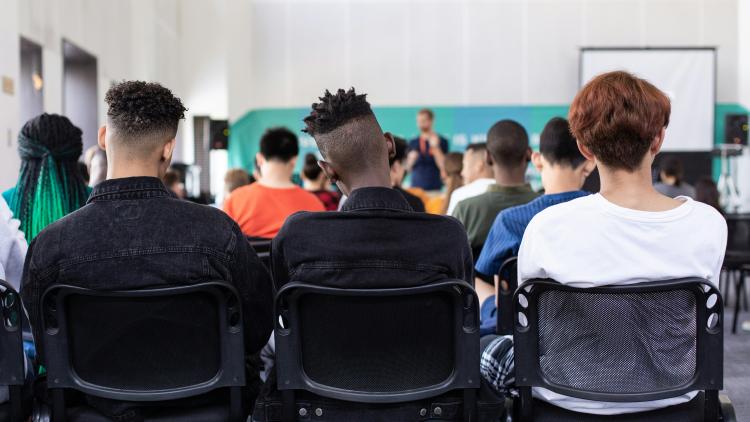
Virtual spaces and new horizons: Humanities in the digital age

Key information
- Date
- to
- Venue
- Zoom meeting
- Room
- TBC
- Event type
- Conference
About this event
From the inception of BBS to the rise of Facebook's metaverse, virtual spaces continue to attract a wide audience with a promise for an alternative realm characterized by a decentralized network of communication and unparalleled connectivity.
It has brought together otherwise isolated individuals and offered them a novel experience that blends the virtual with the physical. Digital technologies and media platforms have not only widened the spectrum of our social interactions and sensory experiences in the 21st century but also generated a transnational intellectual space.
This new arena fosters transdisciplinary dialogues and collaborative initiatives among scholars and practitioners, enabling them to respond speedily to emerging social and cultural phenomena. While digital technologies equip researchers with innovative tools for constructing digital archives, analysing texts, and presenting findings, social media platforms encourage a remapping of the connections and intersections within and across global languages, literature, arts, and knowledge traditions.
Such interdisciplinary connectives may point to new possibilities which redefine and reframe some of the organizing principles and institutional arrangements in the production of knowledge itself, open up new possibilities for rewriting and reimagining concepts and problematics such as “modern,” “modernisms” and “modernities,” and reconsider some of the foundational premises of the humanities, social sciences and technical-cum-natural sciences.
However, rather than solely increasing divisions and polarizing societies, it is becoming increasingly clear that these platforms may primarily exacerbate and intensify existing fissures. Social media and search engine algorithm reinforce users’ pre-existing beliefs and insulate them from diverse perspectives, transforming the once hopeful vision of virtual space into ideological enclaves. Moreover, the widespread adoption of generative AI technologies, which create content in written, audio, or visual forms, not only astonishes users but also heightens concerns over the proliferation of misinformation and disinformation. Additionally, the tension between the extensive datafication of our lives and the rise of data surveillance —warrants critical examination.
The digital era has intensified the urgency to explore humanistic themes, such as language and communication, literature and arts, identity and self, philosophy and aesthetics, history and memory, spirituality and thought. This forum aims to bring together international scholars from various disciplines to reflect on both the opportunities and challenges that the digital age presents for the humanities. We invite papers that explore questions emerging from the intersection of the virtual and physical worlds.
Suggested topics
Suggested topics for papers include, but are not limited to:
- New Languages
- New Forms of Expression
- New Aesthetics
- New Epistemological Hegemonies
- The AI Conundrum
- Reading beyond the Text
- Exhibitions beyond Disciplines
- Gender, Labour and Digital Creativity
- Community and Solidarity in the Digital Age
- Reproducing/Rewriting/Recreating the Idea of Modernity
- Genealogies of the Human World
Submission of Abstracts
Please submit abstracts of 350 words and a biographical note of 100 words to both Xiaoning Lu (xl1@soas.ac.uk) and Haina Jin (jinhaina@cuc.edu.cn) by 10 January 2025. Please entitle your email “SOAS-Tsinghua Workshop Proposal”. Acceptance of abstracts will be notified by 15 February 2025, and the workshop program will be available by 10 March 2025.
Organisers
- School of Languages, Cultures and Linguistics, SOAS University of London
- Institute for World Literatures and Cultures, Tsinghua University
- UK-China Humanities Alliance
This is part of the UK-China Humanities Alliance International Forum Series, 'World Maps and World Cultures'.
Photo by Shahadat Rahman on Unsplash


